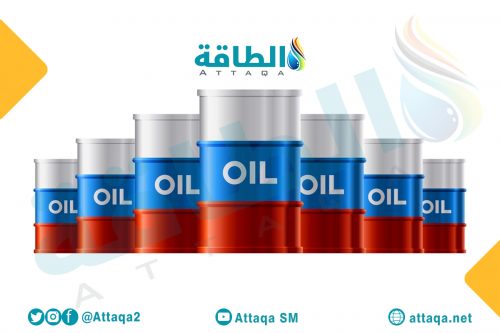Energy platform editorial advisor, energy economics expert Dr. Anas Al-Hajji, said that everything issued by the US Treasury Department regarding the oil price ceiling is a kind of unfounded propaganda.
Al-Hajji explained – in the program “Energy humanitiesHe presented an episode of it on Twitter entitled “The World Between Extremism and Rationality… Between Price Ceilings and Exceptional Taxes… Between Economic Growth and Recession”- that there is several evidence that the claims of the Treasury and its media are incorrect.
The first of these evidences – according to al-Hajji – is that the oil price ceiling was applied only 40 days ago, which is not enough time to sell oil by companies, receive money and then transfer it to Russia, then pay taxes to the Russian government on it, and everyone who works in large institutions and financial contracts. He knows this.
He added, “The government of President Vladimir Putin must first receive taxes, so that we can count that it has received revenues, but the taxes are paid later, and the ceiling for oil prices is higher than the market price, as it was set at $60 a barrel, while the price of Russian oil is at Markets are lower than that, between $37 and $45 a barrel.”
Oil prices fell
Energy economics expert, Dr. Anas Al-Hajji, said that global oil prices have decreased by about 20% during the recent period, and with it – outside the framework of the oil price ceiling – the price of Russian oil transported by sea has declined.

Al-Hajji explained that when the US Treasury says that the oil price ceiling led to a reduction in Russian revenues, there must be a standard for comparison, since it was applied on December 5, 2022, and the beginning of the war at the beginning of the year must be compared with the revenues of December 2021.
He added, “The goal here is to know whether Russia’s oil revenues have increased or decreased after applying the oil price ceiling,” stressing that the strange thing is that any comparison reveals that revenues have increased and not decreased, and Russia has achieved huge revenues.
And he continued: “Our estimate was an increase in revenues by about 35%, and I believe that Deputy Prime Minister of Russia Alexander Novak announced a lower number, which is 27%, but the idea is that when comparing revenues during the same period, we find that there is an increase, and when comparing December with the time of The beginning of the war and the two months following it, we also find an increase.”
Dr. Anas Al-Hajji pointed out that the average Russian oil price in 2022 was higher than the average price in 2021, so the US Treasury’s talk about the decline in Russian oil revenues is not correct at all, because it has already achieved huge revenues over the past year.
And he added, “Russia has bought huge quantities of gold during the past years, and stored large quantities of it, and the decline in Ural crude prices after the war and several months before the sanctions and the price ceiling was greater than the last period in which the sanctions and the price ceiling were applied.”
Al-Hajji asked: “How, then, did the ceiling on oil prices leave an impact when the reduction before its imposition was greater?” He explained, “This is unreasonable. It is clear that the price ceiling was an American gift to President Vladimir Putin, to protect him from the Europeans, and to protect Russian oil from more measures.” Strictness may be taken by the leaders of the European Union.”
Ease of buying Russian oil
Anas Al-Hajji, Editorial Advisor for the Energy Platform, said that setting the ceiling for Russian oil prices at $60 a barrel made the buying process easier.

He added, “If anyone wants to buy Russian oil, or has a shipping company and wants to load it on ships, all he has to show are two papers. 37 and 42 dollars per barrel.
Al-Hajji explained that once these two papers are obtained, it is easy to obtain insurance from any company in Europe, and then obtain a bank credit in any European bank, after which ships can obtain ship services, facilities, and others from any port in the old continent.
Dr. Anas al-Hajji pointed out that the price of Russian Urals crude dropped like this shortly after the start of the war. When oil was sold at about $100 a barrel, the price of Russian oil was $75, without sanctions or a price cap.
He continued, “The natural market for Urals oil is Europe, and by looking at the map, we find that it is normal for the Gulf countries not to send most of their oil to Europe and send it to Asia, and for Russia to sell its oil to Europe because of the close distance, which is what happens historically.”
related topics..
Also read..

Leave a Reply